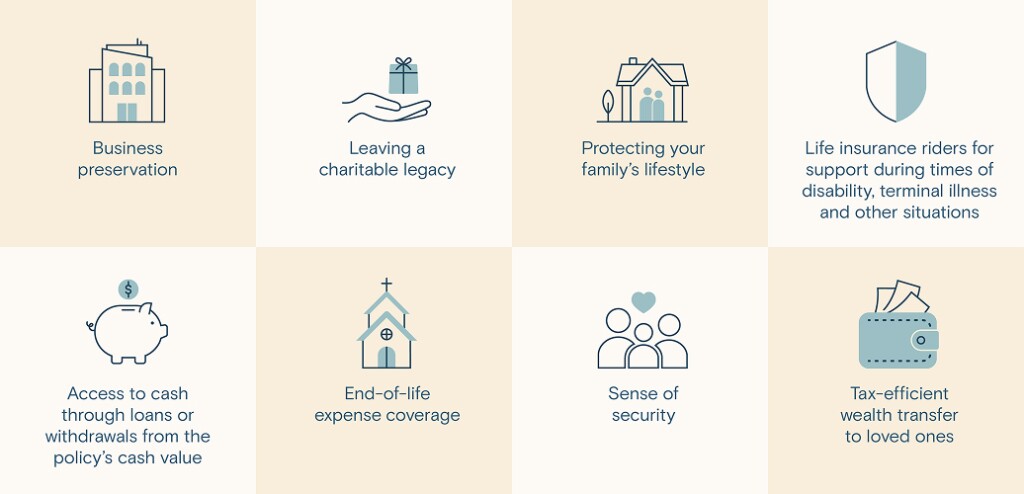When you have children or other dependents, the protection offered by life insurance can become a financial necessity. But that doesn't mean you have to put off buying a contract until you start a family. Purchasing coverage as a young adult can have a number of advantages regardless of whether you have dependents.
Should you get life insurance in your 20s, then? If you want to potentially lower your payment and protect family members from financial challenges, the answer may be yes.
5 reasons to purchase life insurance in your 20s
When you're still relatively young, it's easy to think of protection for your loved ones as something you'll get around to buying later. It may be a relatively low priority compared to other expenses.
In the long run, however, signing up for coverage earlier may help reduce your future bills and give you more financial freedom later in life. Here are five of the key benefits of life insurance for young adults:
1. Protection for your loved ones
If you already have children or other family members that you support financially, life insurance can help provide for them when you die, particularly if it's unexpected. Even if you don't have dependents, though, a policy can help your loved ones, giving them some means to cover your funeral expenses, which can be a significant financial burden. The
Another example of how to use the
2. Access to cash value
When you pay premiums on a permanent life insurance policy—a category that includes
Having that cash value to draw upon gives you more financial options when you're in times of need. Whether it's paying a tuition bill or making the down payment on your first home, life insurance can provide a backup source of cash you can turn to without taking on debt. You also can draw on that balance to
3. Potential to grow your wealth over time
Insurance companies make interest payments—and in some cases,
4. Lower rates for younger customers
Typically, the older you are when you apply, the more expensive life insurance becomes. Therefore, obtaining coverage in your 20s could help you get a more affordable rate for the same amount of coverage. With whole life insurance policies, the premium is guaranteed for life. By locking in your price when you are younger, you know what your payment will be in the future.
5. Greater chance of insurability
The onset of a medical condition at some point in the future could mean higher life insurance premiums or even the inability to qualify for coverage at all. Signing up when you're 20-something and in good health can help you ensure your future, older self will have coverage later on regardless of what happens. Once you purchase life insurance, your coverage is guaranteed for as long as the policy is active.
Calculate your life insurance needs
Enter your current assets, expenses and income. You also can adjust the inflation rate and your expected rate of return to see how these variables could impact your insurance needs.
How much life insurance should you get?
When purchasing a life insurance policy,
If you already have a spouse, child or other dependent, you may want a more personalized approach. That means you'll need to estimate their long-term financial needs should you die. Start by adding up your family's approximate living expenses per year. This may include:
- Housing
- Food
- Transportation
- Clothing
- Daycare
- Activities and vacations
- Mortgage or other debt payments
- Contributions to a college fund
Next, tally the monthly amount that your loved ones are likely to be able to contribute from their own paychecks or investment accounts. You'll want life insurance that can cover any difference between their income and expenses for as long as that gap exists.
If you can't afford the desired amount of insurance, buying as large a policy as you can afford is still a positive step for your loved ones. Even if you only buy enough coverage to pay your final expenses, you could be relieving your family of a considerable financial burden.
The benefit of getting life insurance in your 20s
Purchasing life insurance isn't just for adults who already have started raising a family. It also can be a powerful tool for those who plan to have a family and want to lock in coverage at a more favorable rate—or those looking for a solution to unforeseen financial needs later in life.
All that said, it's important to understand your options before buying insurance at a young age. It's also crucial to prioritize where your income is going. A







